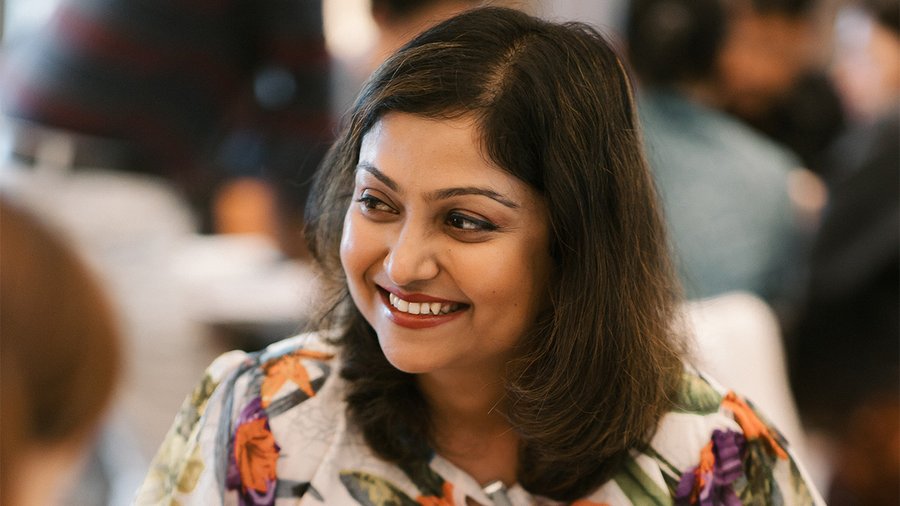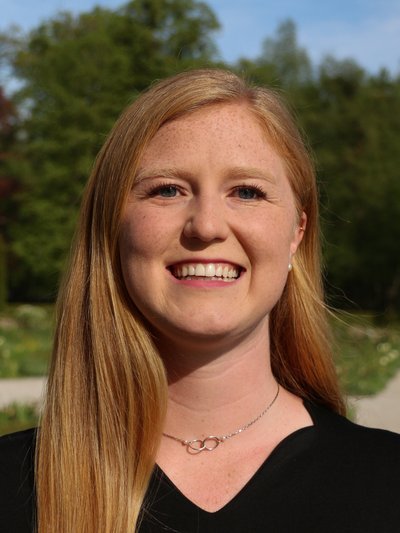How a MedTech entrepreneur is tackling malnutrition in India with AI-driven solutions
Romita Ghosh is a distinguished founder-CEO at the forefront of medtech, driving transformative ventures reshaping healthcare in India. Romita's ground-breaking solution, Maap AI, revolutionizes child nutrition, solidifying her influence in media and positioning her as a transformative force in healthcare. She has earned several accolades, such as Most Inspiring Woman Entrepreneur, Entrepreneur of the Year, feature in Top 50 Woman in Innovation, and Women Transforming India Award (2021) for her contribution to medtech.
Audrey Plimpton, Salzburg Global Communications Associate: What challenges are you trying to address through your work in healthcare and technology?
Romita Ghosh, Founder and CEO, iHeal HealthTech: At iHeal HealthTech, we are committed to combating malnutrition in India. Currently, 61% of births in the country occur without medical supervision, leaving parents and caregivers unaware of the essential nutritional and medical needs of infants. This gap often results in delayed dietary interventions, negatively impacting children's cognitive development. Additionally, many underserved areas in India suffer from severe acute malnutrition, wasting, and stunting, affecting children's growth.
To address these challenges, we have developed an AI-powered anthropometric assessment tool. By simply taking an image, we can measure an infant's length and a child's height up to six years old. This data, correlated with age and weight, provides crucial insights into nutrition and diet plans for caregivers and parents. Our technology is currently utilized in local health facilities, enabling women healthcare workers to use smartphones to monitor the growth of young children in their communities. By leveraging AI, we aim to provide timely and accurate nutritional guidance, ensuring that every child has the opportunity to thrive.
AP: How can technology be leveraged to improve health outcomes and access to health care?
RG: One of India's significant challenges is the lack of awareness and persistent taboos around various illnesses and diseases. Our society tends to be reactive rather than preventive, often resulting in misdiagnosis and self-diagnosis due to the poor citizen-to-doctor ratio. Technology, therefore, plays a crucial role in making healthcare both affordable and accessible, especially in underserved areas with unique local contexts.
India's diverse demography presents language, cultural, and socioeconomic barriers. However, technology, being neutral and universally accessible through smartphones, can bridge these gaps. By providing accurate information and diagnostic tools, technology empowers individuals to take proactive steps towards their health. Moreover, it ensures that critical medical guidance reaches even the remotest corners of our country, transforming healthcare delivery and outcomes.
AP: What sparked your passion for technology in healthcare?
RG: My journey with technology began in school as a coder. Torn between my love for computer science and biology, I pursued biotechnology and public health, discovering the profound impact technology could have on healthcare. The potential of technology to enhance healthcare interventions and make them more affordable and accessible became evident, especially during the COVID-19 pandemic.
On a personal note, surviving blood cancer as a child profoundly shaped my mission. My parents' access to top-tier hospitals and doctors in Mumbai saved my life, but I realized that many others aren't as fortunate. This personal experience ignited a deep-seated motivation to reduce healthcare costs and improve accessibility across India. I am dedicated to ensuring that quality healthcare is not a privilege but a fundamental right for all.
AP: As a female entrepreneur in the MedTech industry, what unique challenges do you believe that women face in STEM fields? How can we address these challenges to work towards gender diversity in STEM?
RG: The challenges women face in STEM start early, often with limited access to education and a lack of encouragement to pursue STEM fields. Cultural biases, socioeconomic conditions, and a preference for investing in sons over daughters contribute to higher dropout rates among girls. Consequently, fewer girls choose STEM, missing out on opportunities to engage with frontier technologies like AI and machine learning.
Encouraging girls to pursue STEM is essential for building a diverse and innovative workforce. Women bring unique perspectives, particularly in healthcare, where empathy and cultural sensitivity are crucial. Women-led MedTech companies often excel in creating impactful interventions. Promoting gender diversity in STEM not only addresses equity but also enhances the quality of solutions developed. As a society, we must prioritize and support women's education and career paths in STEM fields to foster a more inclusive and innovative future.
AP: What opportunities do you see for collaboration with Japan in the fields of healthcare and technology, especially through the Japan-India Transformative Technology Network?
RG: I think both India and Japan are very pro-innovation. But how we approach innovation is different. Japan is very process-oriented. However, India uses frugal innovation, and we experiment a lot. From Japan, we can learn compliance, safety, and data protection. If we collaborate, we can solve the missing links and gaps. Together, we can make human-centric design the core principle in healthcare. My personal view is that the patient should be at the heart of the entire ecosystem. With Japan's help, we can make healthcare patient-centric.
Platforms like this help bust the myths around our perception of other cultures. We were able to learn and understand not just the scientific aspect of the projects and collaborations that we are making, but also how we are different culturally. What was also important that came out was that we are all the same people, and we have the same problems, however our approach to finding a solution may be different. I believe our strength lies in understanding and learning from each other. By deepening our mutual knowledge and collaboration, together we can innovate more effectively, combining our unique strengths to address global challenges comprehensively.
Romita is a member of the third cohort of the Japan-India Transformative Technology Network, which connects and empowers outstanding change-makers in two countries on the forefront of technological progress in Asia – India and Japan. The program offers a platform for those working towards social good to maximize the benefits of various forms of new technologies.



